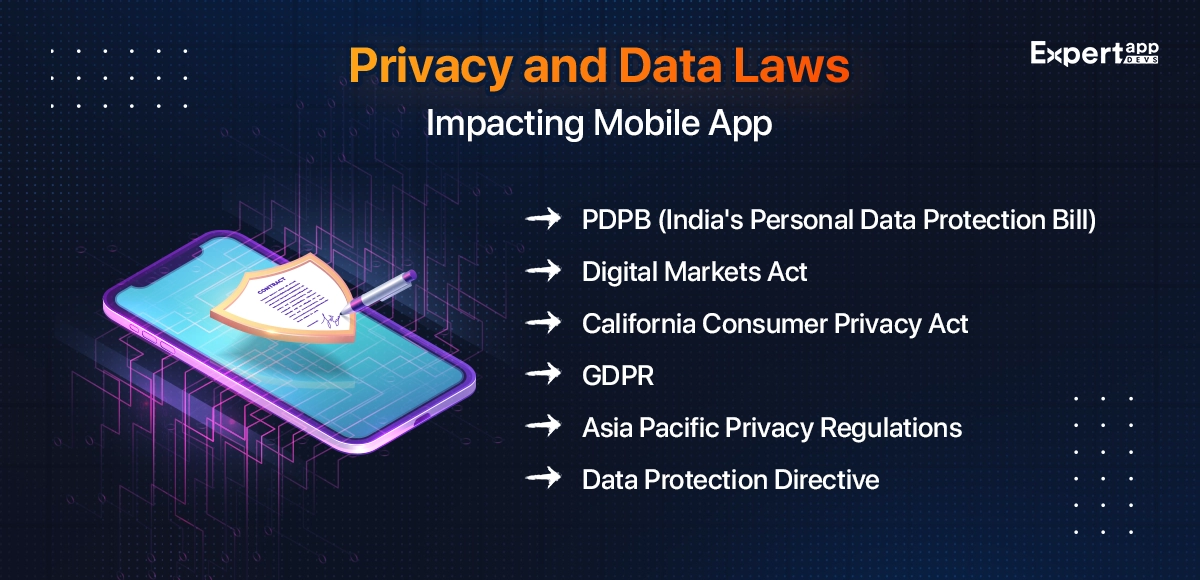CNIL Recommendations For Mobile App Privacy

Table of Contents
Data Minimization and Purpose Limitation: Core Principles of CNIL's Mobile App Privacy Recommendations
The foundation of strong mobile app privacy lies in the principles of data minimization and purpose limitation. These core tenets, central to GDPR compliance and CNIL guidelines, dictate that app developers should only collect the minimum amount of data necessary for the app's functionality and solely for the specified purpose. Failure to adhere to these principles can lead to substantial fines and reputational damage.
Collecting Only Necessary Data
Only collect data that is absolutely essential for your app's core features. Avoid collecting unnecessary personal information. Ask yourself: Does this data point directly contribute to the app's intended functionality?
- Examples of Unnecessary Data Collection: Collecting user's full address when only their postcode is required for location-based services; collecting precise location data continuously when only occasional location updates are necessary.
- Risks of Unnecessary Data Collection: Increased risk of data breaches, non-compliance with GDPR and CNIL regulations, erosion of user trust, and potential legal repercussions.
- Identifying and Eliminating Unnecessary Data Collection: Conduct a thorough data audit, reviewing each data point collected. Analyze each data point's necessity and consider alternatives that minimize data collection.
Transparency and User Consent
Transparency is key to obtaining valid user consent. Clearly explain why you need specific data and how it will be used. Avoid complex legal jargon.
- Obtaining Valid, Informed User Consent: Use clear and concise language in your privacy policy and consent requests. Provide users with a meaningful choice and allow them to easily withdraw consent at any time.
- Clear and Concise Privacy Policies: Your privacy policy should be easily accessible, written in plain language, and regularly updated. Ensure it accurately reflects your data collection and handling practices.
- Handling User Consent Effectively: Implement mechanisms to record and manage user consent preferences. This includes providing users with options to customize their data sharing preferences and withdraw consent.
Data Security Measures
Protecting user data is non-negotiable. Implement robust security measures to prevent unauthorized access, use, disclosure, alteration, or destruction of personal data.
- Appropriate Security Measures: Employ encryption for data in transit and at rest, secure storage solutions (e.g., cloud storage with robust security protocols), and regular security audits.
- Importance of Regular Security Audits and Updates: Regularly assess your security posture, identify vulnerabilities, and update your security measures to address emerging threats. Stay updated on the latest security best practices.
Managing User Data: CNIL Best Practices for Mobile App Data Handling
Effective data management is crucial for compliance. The CNIL provides detailed guidelines on how to handle user data throughout its lifecycle.
Data Storage and Retention
Choose appropriate data storage locations and implement clear data retention policies, complying with legal requirements and minimizing data storage duration.
- Appropriate Data Storage Locations: Consider data sovereignty laws and choose storage locations that comply with relevant regulations.
- Complying with Data Retention Limits: Define specific retention periods for different types of data, ensuring that data is deleted or anonymized once it's no longer needed.
- Secure Data Deletion Practices: Implement secure data deletion procedures to prevent data recovery.
Data Transfers and Cross-Border Data Flows
Transferring user data to third parties or across borders requires careful consideration of relevant regulations.
- Regulations Surrounding Data Transfers: Ensure compliance with GDPR’s rules on data transfers, including using appropriate safeguards like standard contractual clauses or binding corporate rules.
- Ensuring Compliance with Data Transfer Regulations: Carefully vet third-party processors, ensuring they adhere to stringent data protection standards. Conduct due diligence to ensure they meet CNIL guidelines.
- Choosing and Managing Third-Party Data Processors: Clearly define responsibilities and liabilities in contracts with third-party data processors. Regularly monitor their compliance.
User Rights and Data Subject Access Requests (DSARs)
Users have the right to access, rectify, erase, and restrict the processing of their personal data. Efficiently handling DSARs is essential.
- User Rights: Understand and comply with users' rights under the GDPR, including the right to access, rectification, erasure (“right to be forgotten”), restriction of processing, data portability, and objection.
- Handling DSARs Effectively: Establish clear procedures for handling DSARs, ensuring timely responses and providing users with the requested information in an accessible format.
- Data Breach Notification: Implement a clear process for notifying the CNIL and affected users in case of a data breach, in accordance with legal requirements.
Specific CNIL Recommendations for Different Mobile App Features
The CNIL provides specific guidance on handling data collected through various app features.
Location Data
Obtain explicit consent for collecting location data, specifying its purpose and limiting collection to only when necessary. Consider using anonymized or aggregated data where appropriate.
In-App Purchases
Be transparent about the data collected during transactions, ensuring compliance with payment processing regulations and protecting sensitive financial information.
User Profiling
If you engage in user profiling, ensure transparency, obtain explicit consent, and provide users with the ability to control their profiles. Address ethical considerations regarding potential biases and discriminatory practices.
Push Notifications
Respect users' preferences and provide easy opt-in/opt-out mechanisms for push notifications. Avoid sending excessive or irrelevant notifications.
Conclusion: Ensuring Compliance with CNIL Recommendations for Mobile App Privacy
Adhering to CNIL recommendations is crucial for building user trust, avoiding penalties, and maintaining a positive reputation. Data minimization, transparent consent, robust security, and proper data handling are essential for compliance with French data privacy laws and the GDPR. Non-compliance can result in significant fines and legal issues. Prioritize user privacy and data protection; it’s not just a legal obligation but a sound business practice. Stay compliant with CNIL regulations and prioritize user data protection by reviewing our comprehensive guide to CNIL recommendations for mobile app privacy. Download our free checklist today!

Featured Posts
-
 Analyzing The Washington Commanders 2025 Nfl Draft Prospects A Comprehensive Big Board
Apr 30, 2025
Analyzing The Washington Commanders 2025 Nfl Draft Prospects A Comprehensive Big Board
Apr 30, 2025 -
 Trial Begins Jury Selection In Charlotte Mothers Death Case
Apr 30, 2025
Trial Begins Jury Selection In Charlotte Mothers Death Case
Apr 30, 2025 -
 Our Yorkshire Farm Reuben Owen Reveals His Least Favorite Aspect Of The Show
Apr 30, 2025
Our Yorkshire Farm Reuben Owen Reveals His Least Favorite Aspect Of The Show
Apr 30, 2025 -
 Snl Bowen Yang Wanted Out Of Jd Vance Role Lorne Michaels Response
Apr 30, 2025
Snl Bowen Yang Wanted Out Of Jd Vance Role Lorne Michaels Response
Apr 30, 2025 -
 Days Before Canadian Election Trumps Assertions On Us Canada Relations
Apr 30, 2025
Days Before Canadian Election Trumps Assertions On Us Canada Relations
Apr 30, 2025
